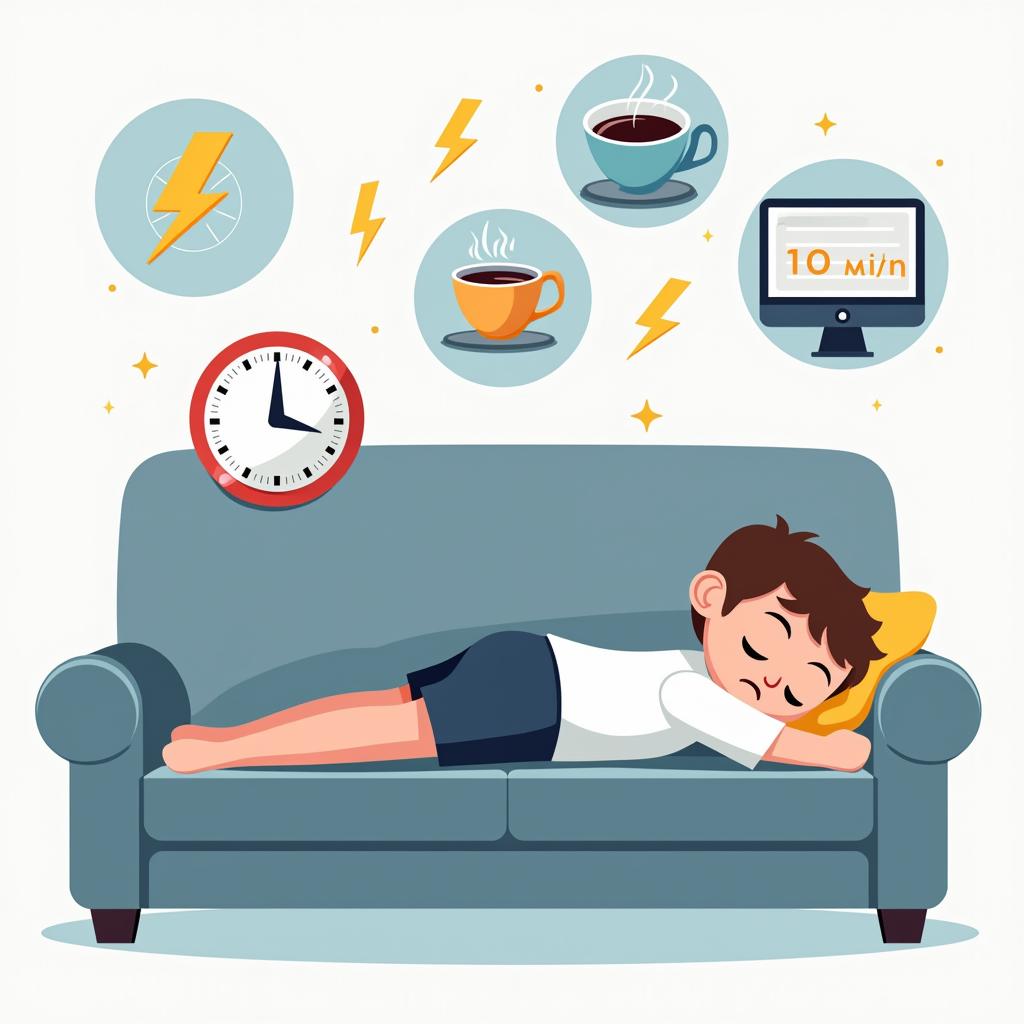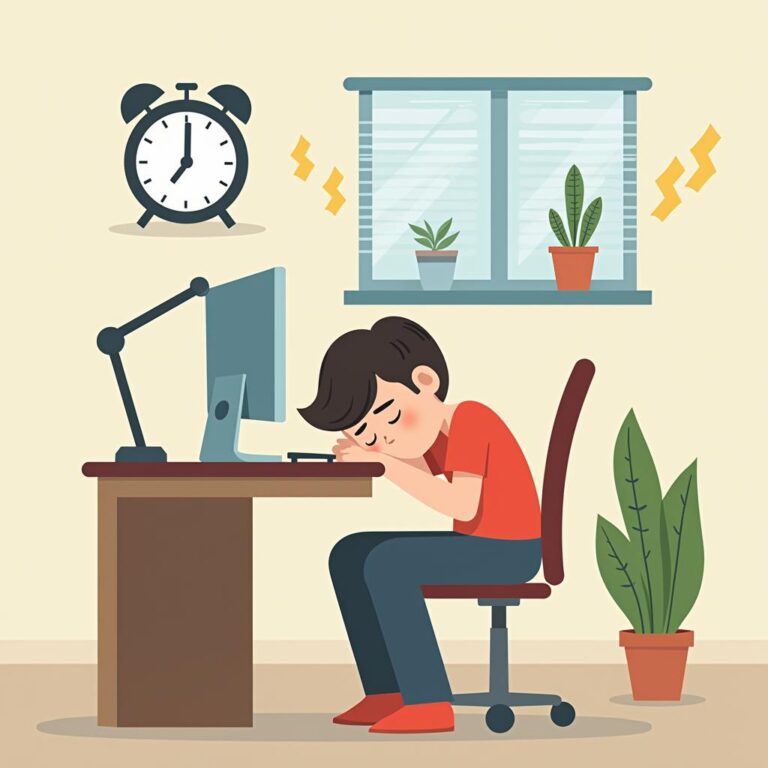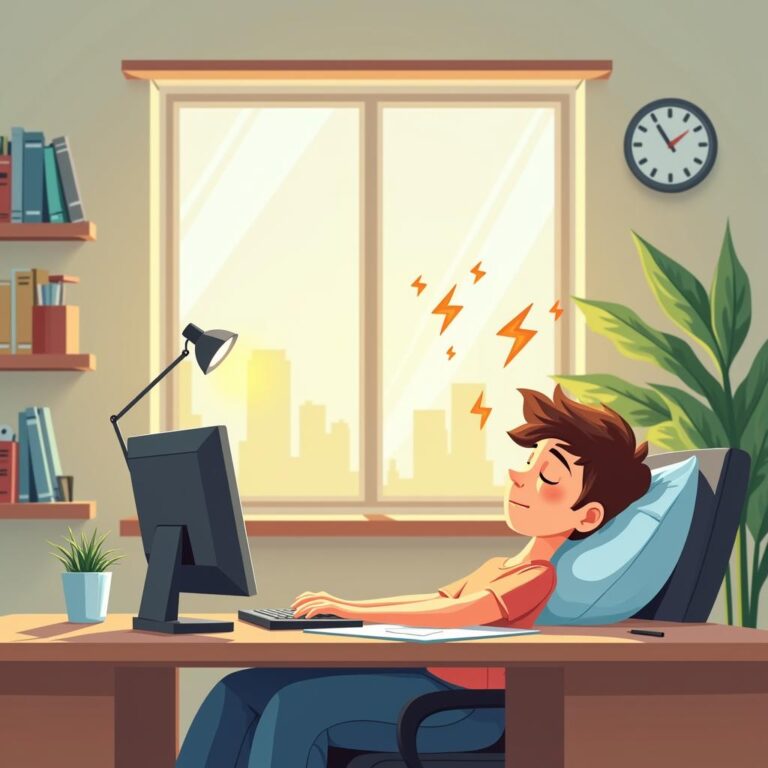In our fast-paced world, fatigue and declining focus can become major obstacles to productivity and overall well-being. One effective strategy that has gained popularity, particularly among busy professionals and students, is taking power naps. However, the question remains: what is the best power nap duration for improved focus and energy? In this article, we will explore the optimal power nap lengths, their benefits, and tips for incorporating them into your daily routine.
Understanding Power Naps
A power nap is a short sleep that is intended to quickly revitalize and rejuvenate the mind and body. Unlike extended naps that can lead to grogginess, power naps are designed to help you wake up feeling refreshed and more alert.
The science of napping indicates that the brain goes through various stages of sleep. A typical sleep cycle lasts about 90 minutes and includes light sleep, deep sleep, and REM sleep. The key to a successful power nap is timing it appropriately to avoid waking up during deep sleep, which can lead to sleep inertia.
Research on Nap Duration
Research suggests that the ideal power nap duration varies based on individual needs and schedules. Here are the most commonly recommended durations:
10 to 20 Minutes
This is often considered the ultimate power nap. A nap of 10 to 20 minutes allows you to enter the light stages of sleep, which can enhance alertness and improve cognitive performance without the risk of sleep inertia. This duration is perfect for a quick refresh during a lunch break or before important tasks.
30 Minutes
A 30-minute nap may lead to a small amount of deep sleep. While this can still be refreshing, it increases the likelihood of waking up feeling groggy. It’s ideal if you have a bit more time and need a moderate boost in mental agility.
60 Minutes
Napping for 60 minutes typically allows one to enter deeper sleep. This duration can be beneficial for improving memory recall and making it easier to learn new information. However, the risk of waking up feeling groggy is higher.
90 Minutes
A 90-minute nap can complete a full sleep cycle, allowing you to experience both deep sleep and REM sleep. Waking up after a full sleep cycle can leave one feeling more refreshed and energized, reducing overall fatigue. This length is ideal for those who have enough time and need more significant cognitive benefits.
Benefits of Napping
Napping offers several benefits that can significantly improve focus and energy levels:
Enhanced Cognitive Function
Short power naps can boost cognitive function, improving alertness, memory retention, and problem-solving abilities. This effect can lead to increased productivity throughout the day.
Improved Mood
Taking a brief nap can improve mood and reduce stress. Better emotional regulation can lead to enhanced focus and creativity in work and personal projects.
Physical Health Benefits
Power naps may enhance physical health by lowering blood pressure, reducing stress levels, and improving cardiovascular health. A healthy body contributes to better focus and energy levels overall.
Tips for an Effective Power Nap
To maximize the benefits of your power nap, consider the following tips:
Choose the Right Time
The ideal time to take a power nap is typically between 1 PM and 3 PM when energy levels tend to dip. Napping too late in the day may interfere with your nighttime sleep.
Create a Comfortable Environment
Find a quiet, dark place to nap. Use an eye mask, earplugs, or white noise machines to block out distractions and create a restful environment.
Set an Alarm
To avoid oversleeping, set an alarm for your desired nap duration. This will help you wake up feeling revitalized rather than groggy.
Stay Consistent
Incorporate power naps into your daily routine for the best results. Regular napping can train your body to get the most out of short sleep durations, leading to increased focus and energy.
Common Myths About Napping
Despite the growing acceptance of power naps, several myths persist that can prevent individuals from taking advantage of their benefits:
Napping is a Sign of Laziness
Many people associate napping with laziness; however, research shows that taking short naps can enhance productivity and creativity. Rather than being a waste of time, napping can lead to increased efficiency and effectiveness in your tasks.
Naps Are Only for Sleep Deprived Individuals
While those who are sleep deprived can benefit significantly from naps, anyone can enjoy the advantages of a short rest. Incorporating naps into a balanced routine can help maintain optimal performance.
Napping Disrupts Nighttime Sleep
For most people, short naps during the day do not negatively impact nighttime sleep. However, if you find that your sleep is disrupted, consider adjusting the timing or duration of your naps.
Conclusion
The best power nap duration for improved focus and energy can vary from person to person, but a general consensus suggests that a nap of 10 to 20 minutes is ideal for most. Whether you need a quick refresh during a busy workday or are looking to enhance your cognitive function, incorporating power naps into your routine can provide significant benefits. With the right approach, brief periods of rest can be a powerful tool to improve not only focus and energy but also overall productivity and well-being.







